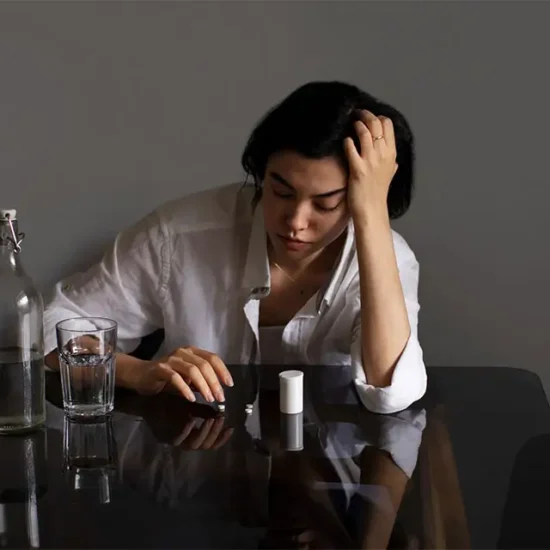Mental health challenges can affect every part of your life, making it hard to work, maintain relationships, or enjoy daily activities. When things feel overwhelming, getting help from a mental health treatment facility can be a vital step toward recovery. These facilities offer specialized care in a structured environment, tailored to meet your specific needs.
Choosing the right facility is essential to ensure you receive the care that best matches your condition, preferences, and goals. Different facilities offer various levels of care, including inpatient and outpatient services, residential programs, and more flexible options like Partial Hospitalization Programs (PHP) and Intensive Outpatient Programs (IOP). Understanding these choices will help you decide wisely.
Types of Mental Health Treatment Facilities
Mental health treatment facilities vary in the level of care they provide, ranging from 24/7 inpatient services to flexible outpatient programs and long-term residential care.
Inpatient Treatment Facilities:
Inpatient facilities provide 24/7 care for those experiencing severe mental health crises. Located in hospitals or psychiatric centers, these facilities offer constant support and monitoring, making them ideal for individuals with serious conditions like severe depression or schizophrenia, or those at risk of harming themselves or others. Inpatient care focuses on stabilizing patients and preparing them for less intensive care.
Outpatient Treatment Facilities:
Outpatient facilities offer flexibility, allowing individuals to live at home while attending therapy sessions and medical appointments. This option is suitable for those who need regular mental health support but do not require constant supervision. The intensity of outpatient care can differ, from once-a-week sessions to more frequent treatment plans.
Residential Treatment Facilities:
Long-term care is provided in residential facilities that create a homely atmosphere. Patients live on-site and follow a structured daily routine that includes therapy, life skills training, and recreational activities. This type of facility is best for individuals with chronic conditions who need a stable environment for recovery.
Partial Hospitalization Programs (PHP):
PHPs represent a balanced approach between inpatient and outpatient treatment. Patients attend daytime treatment sessions and return to their homes in the evenings. PHPs are ideal for those who need more support than outpatient care but do not require full-time supervision.
Intensive Outpatient Programs (IOP):
IOPs provide more support than standard outpatient treatment without the need for full-time care. Patients attend multiple therapy sessions per week, which may include cognitive behavioral therapy (CBT) and other approaches. IOPs allow individuals to maintain their daily responsibilities while receiving structured care.
Services Offered at Mental Health Treatment Facilities
Mental health treatment facilities provide a range of services, from therapy and medication management to holistic therapies, life skills training, and peer support, to aid recovery.
Therapy Services:
Mental health treatment facilities offer different types of therapy, including individual, group, and family sessions. Approaches like Cognitive Behavioral Therapy (CBT) and Dialectical Behavior Therapy (DBT) help patients better understand their mental health, develop coping skills, and grow personally.
Medication Management:
Medication management involves careful evaluation, personalized prescriptions, and ongoing monitoring by psychiatrists. Professionals work with patients to adjust medications as needed, ensuring they work well with minimal side effects to improve overall treatment outcomes.
Holistic and Recreational Therapies:
Holistic therapies such as yoga, mindfulness, and art therapy focus on improving mental and physical well-being. These activities reduce stress, enhance mood, and support emotional balance, adding a valuable layer to traditional treatment methods.
Life Skills and Vocational Training:
Life skills and vocational training teach patients practical skills for daily living and work. These programs help with job readiness, money management, communication, and everyday tasks, preparing individuals for a more independent life after treatment.
Support Groups and Peer Support:
Support groups and peer support provide a community where patients can connect, share their experiences, and learn from others. These sessions offer emotional support and understanding, helping individuals feel less isolated during their recovery journey.
Tips for Choosing the Right Mental Health Treatment Facility
Choosing the right mental health facility involves assessing your needs, researching options, evaluating services, considering location, and understanding financial aspects.
- Assessing Your Needs:
Start by identifying your mental health needs and determining the level of care required. Consider whether you need intensive, round-the-clock support or if a more flexible outpatient setting would work.
- Researching Facilities:
Find accredited centers with a team of experienced professionals and favorable reviews. Recommendations from healthcare providers can also guide you in finding the right facility.
- Evaluating Services and Programs:
Make sure the facility offers the specific treatments you need, such as medication management or specialized therapies like DBT. The availability of holistic therapies and support groups can also enhance your experience.
- Considering Location and Environment:
Some people prefer facilities close to home to stay connected with family and friends, while others might benefit from a new environment. Opt for the environment that best facilitates your healing process.
- Financial Considerations:
Understand the costs and explore financial assistance options. Check with your insurance provider to see what is covered and inquire about any available financial aid programs.
What to Expect During Your Stay at a Mental Health Facility
During your stay at a mental health facility, expect structured routines, personalized therapy, supportive interactions, and preparation for life after discharge.
- Initial Assessment and Intake Process:
Upon arrival, patients undergo an assessment to develop a personalized treatment plan. This may include medical and psychological evaluations and goal-setting with therapists. - Daily Routine and Schedule:
Facilities usually follow a structured daily schedule, including therapy sessions, group activities, and time for meals, rest, and recreation. This structure helps create a stable environment conducive to recovery. - Therapy Sessions and Activities:
Therapy sessions are a key part of treatment, offering opportunities to explore thoughts, feelings, and behaviors. Activities like art or music therapy can enhance the therapeutic process. - Interaction with Staff and Peers:
Building positive relationships with therapists and peers is crucial. These interactions help create a supportive environment where patients feel understood and motivated to engage in their recovery. - Preparing for Discharge:
As treatment ends, facilities focus on preparing patients for life after discharge, including developing aftercare plans and providing resources for continued support.
Frequently Asked Questions (FAQs)
Q: How are inpatient and outpatient care different?
A: Inpatient care provides 24/7 supervision in a hospital or residential setting, while outpatient care allows you to live at home and attend scheduled therapy sessions.
Q: How long does treatment typically last?
A: Treatment duration varies. The duration of inpatient stays ranges from a few days to weeks, while outpatient programs can last for multiple months.
Q: Will my insurance cover the cost of treatment?
A: Coverage depends on your insurance plan and the facility. Check with your provider and the facility’s billing department to understand what is covered.
Q: What steps should I take if I need urgent mental health care?
A: Seeking assistance shows bravery, and finding the right facility is vital for your healing process.
Conclusion
Choosing the right mental health treatment facility is an important step in your recovery. Knowing the types of facilities, their services, and what to expect will help you find the best fit for your needs. The right facility offers the care and support needed to improve your mental health and overall well-being. With the right treatment, expert guidance, and a supportive environment, you can overcome challenges and work toward a healthier, happier life. It takes strength to seek help, and finding the appropriate facility is critical for your recovery.
BHouses offers a ton of resources for those looking to take care of their mental health. Contact us today for more information.










